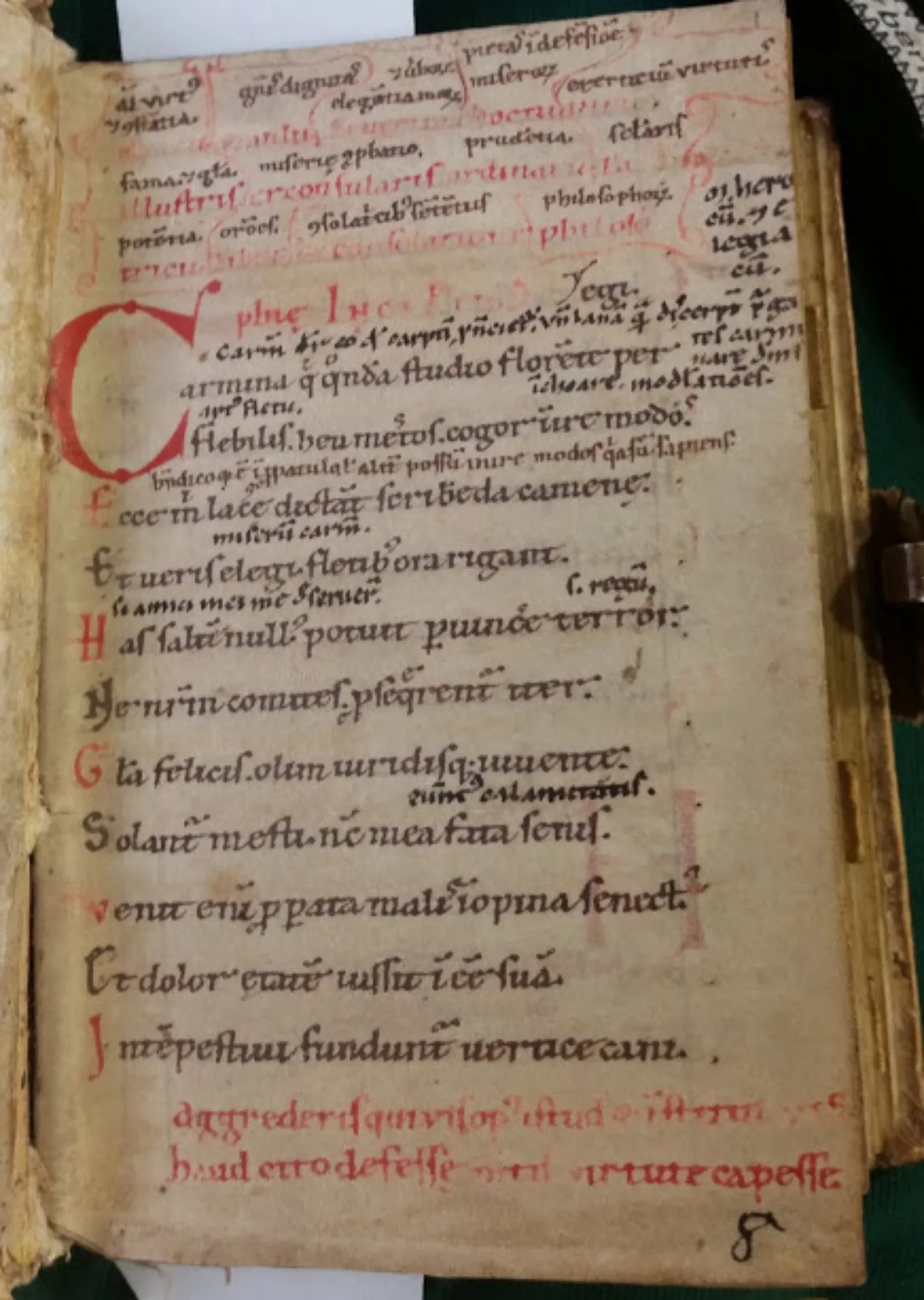By exploring the potential alignment between a premodern philosophical structure and modern police and prison abolition, this course offers a new way for medieval archives to support racial justice. When the 6th-century philosopher Boethius—himself a political prisoner—recognizes the limits of human perceptual structures while theorizing as-yet-unseeable horizons, he models a practice crucial to abolition. To develop the formulation of Boethian abolition, we will read abolitionist thought while examining the Newberry’s Boethian manuscripts, which include vernacular translation and other forms of response. We will seek in the archive an unexpected springboard for emancipatory thought, using that force to help propel the abolitionist project.
Learn more about the instructor, Seeta Chaganti.
